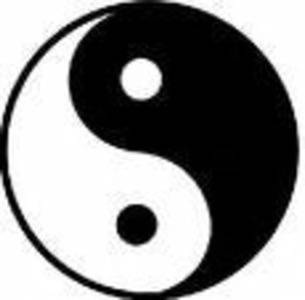MIT Alumni, technologist, venture capitalist, marathon runner, Colorado dweller,
thinker, blogger, and all around super human, Brad Feld (LinkedIn, Twitter) has made a huge impact on startups. With posts on his personal blog, Feld Thoughts,
and on Ask The VC (a must read for anyone interested in venture funding) Feld has played a major roll in lifting the curtain on the traditionally mysterious venture process. We recently caught up with him for a quick interview.

Background
The venture investing process used to be largely a mystery.
Young entrepreneurs were not sure how to value their companies, nor were they sure what to make of the term sheets offered to them – largely because the mechanics of venture math weren’t open to them. But recently the rules of the game have changed. The venture process is now much more open, in no small part because of Brad Feld.
Feld is also responsible for building what is today a thriving tech community in Colorado. When he moved to Boulder 15 years ago with his wife Amy,
there was little to no tech presence. Today Boulder is a boom town, buzzing with some of the sharpest brains in tech.
Companies like Lijit, Me.dium, and Gnip, as well as a whole pack of TechStars (which Feld started with Dave Cohen) alumni headquartered in Boulder.
Besides making a huge impact as a VC, Feld is one of the most inspirational people I’ve met. It is my pleasure to connect our readers with him via this interview.
What is your background?
I grew up in Dallas. I got an Apple II computer for my bar mitzvah and quickly became a reasonably well adjusted teenage computer nerd way before it was cool. I went to MIT, got a few degrees from there, and started my first successful company (Feld Technologies) when I was a sophomore. With a partner, we grew Feld Technologies into a decent sized (20 person) software consulting firm before selling it in 1993 to a public company (AmeriData Technologies). I worked for a few years at AmeriData while making angel investments with some of the money that I made (companies like Net.Genesis, Thinkfish, Harmonix, and Critical Path).

My wife Amy and I randomly moved to Boulder, Colorado from Boston in 1995 (Boston wasn’t home for us) and have never looked back. In 1995 I started working with the Softbank making investments with them and in 1996 teamed up with three of the other guys working there to start Softbank Venture Capital (which turned into Mobius Venture Capital). I’ve been actively investing as a VC since 1996 in a wide range of software and Internet companies around the US. Last year (2007) I started a new firm with four of my friends from Mobius and we launched our new fund (Foundry Group – www.foundrygroup.com) in the fall of 2007.
How did you get interested in the Venture Capital business?
While Feld Technologies never took in any investment (we only raised $10 to start the company) a number of our customers were Venture Capital firms. We wrote back office software for the VCs to help them manage their portfolio accounting and reporting which – prior to us coming along – was a nasty spreadsheet exercise. I got to know some VCs and after we sold Feld Technologies did some consulting work for a few of them as I was investing as an angel investor. My connection with Softbank was random but timely, as Softbank was making an aggressive push to invest in Internet companies in the US (which directly overlapped with my angel investing). I woke up one day and had co-founded what became Mobius Venture Capital.

What are the top 3 things that you look in a company before you invest? Is there any one thing that always kills the deal for you?
I am a thematic investor. I like to pick a few themes – either deep technological protocols or what I anticipate to be broad market changes in the adoption and use of technology – and invest in the themes over a 10+ year period. Historical themes including email and RSS; current themes include these along with the Implicit Web, Human Computer Interaction, Digital Life, and something we call Glue.

So – thing #1 is “does it fit a current theme?” If no, we pass unless it is an entrepreneur that we know or have worked with before (we aren’t a slave to our themes, but the bar for looking at something outside a current theme is usually having an existing relationship.) The next thing we look at are the people. Are these people we want to work with? Do we think we’ll have fun creating a company together? Do we trust each other and believe we can have an open conversation regardless of the circumstances? Will we be able to kick ass together? If we get past these two gates, then we go deep.
What was your best/worst investment ever?
Best: Based on combined financial metrics and realized absolute dollar returned, probably Service Metrics. Worst: In terms of heartbreak, probably Interliant. I co-founded it, it maxed out at a $2.5b public market valuation in 2000, and was bankrupt in 2002. I’ve had plenty of bad investments that didn’t ever get off the ground; the toughest ones for me have been the ones that had huge value at some point and then got decimated when the Internet bubble burst.

What are the top technologies that you want to invest in over the next 3 years?
Implicit Web, Human Computer Interaction, Digital Life, and Glue.
How did you become a marathon runner?
I was a cross country runner in high school and always loved running. When I hit age 35 (around 2001) I was a blimp, way out of shape, and physically worn out because of how intense work had become. I decided I needed a big goal that would force me to spend time away from work that would benefit me. Marathon running was a logical one since I had always loved to run. I decided that I would run a marathon in every state in the US by the time I turned 50. I’ve knocked down 10 of them (the 11th is happening on June 21).

Which business leaders, past or present, do you admire the most and why?
Warren Buffett, Bill Gates, Andrew Carnegie, George Soros, and my grandfather.
What is one insight, business or technical, that you want to share with our readers?
“Do, or do not. There is no try.”
What is the meaning of life according to Brad Feld?
When it’s over, they dig a hole in the ground, put you in it (or spread your ashes somewhere), print your picture in the newspaper and write some nice things about you, and then life goes on for everyone else but you. Live every minute that you have.











